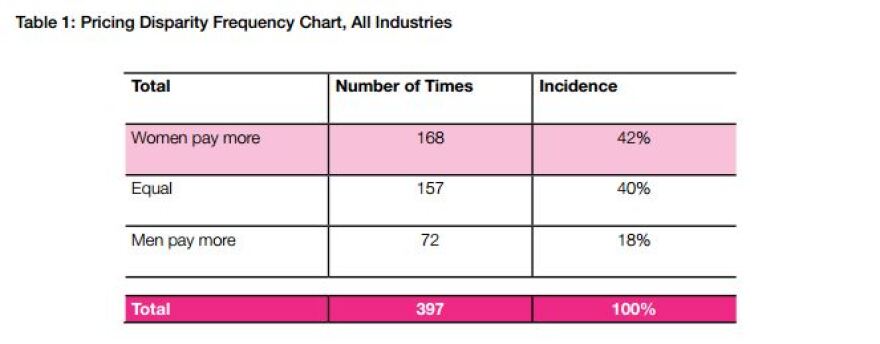Women have gained more financial power in recent years. But they’re still paid less than men and as technology makes it easier to comparison shop, women in Florida and across the country are realizing they’re paying more at the checkout counter. It’s known as the “pink tax.”
One trip to the grocery store shows that items like razors, deodorant and shampoo have different prices depending on whom it’s marketed to. And it doesn’t stop there. From clothes to vehicle maintenance - women are charged more. The pink tax refers to gender-based pricing. Studies reveal products marketed to women, like a pink-colored razor, can cost up to 50 percent more than a similar one in blue.
Some people said it’s outright discrimination against women. But others, including retailers and manufacturers said they’re pricing products based on the consumers’ willingness to pay and products that seem identical are actually not.

Luke Hopkins, assistant director of Florida State University’s marketing department, said the pink tax is real, but also controversial.
“What makes the pink tax so difficult to just nail down and why there’s so much debate about it is a lot of argument can be made for the differences in which make decisions," he said.
Gender-based pricing compounds the problem of the wage gap. Women have less money to start with. Julie Anderson, with the Institute for Women’s Policy Research, said about 23 percent of working single mothers in Florida live in poverty. Over half of Florida families have a working mother.
“It just seems like the wage gap is just about money you take home, when we look at the expenses and see that we’re also disadvantaged in the expense column, that just seems to add insult to injury," she said.
While not directly tackling pricing disparities, some state lawmakers are working to help Florida women get some economic equality. Florida Sen. Kathleen Passidomo, R-Naples, wants to exempt feminine hygiene products from sales tax.
“We’re paying a sales tax on something that is an absolute necessity and yet because of a public policy of trying to foster business growth and development, we’re reducing sales tax on a lot of things related to business.” Rep. Janet Cruz, D-Tampa, wants to exempt diapers and baby wipes.
“I was a former teen mother myself and I understand the challenges and the financial hardships that can come from trying to raise a child, especially when you’re still trying to go to school or you’re working on minimum wage," Cruz said.

More women are becoming aware of the price differences because it’s so easy to compare prices online. But Hopkins said some price differences is from companies setting the highest price they think a consumer is willing to pay. He said generally women care more about their physical appearances than men so they’re willing to pay more for things like shampoo, which costs women 48 percent more than men’s shampoo.
“At the end of the day, I care much less about my hair then say my wife cares about hers," he said. "Not to say that’s the case with all people, but to make a generalization, I think what these companies that price and manufacture hair care products have realized women are more concerned with their hair therefore will pay a price premium.”
Thirteen other states don't tax tampons. Some, like California and Massachusetts, have laws against gender-based pricing for certain services. New York City has similar rules on its books. But determining gender discrimination from pricing reflecting consumer choice remains a tricky prospect.




